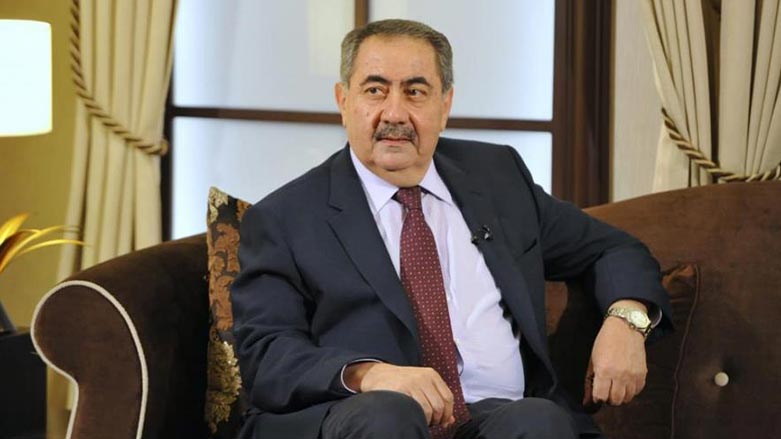Zebari Says Iraq’s Government Formation Marathon Has Begun as Parties Seek Consensus on Next Premier
Hoshyar Zebari urges full constitutional powers for incoming premier; Sunni blocs convene to define their share.

ERBIL (Kurdistan24) — Iraq has officially entered what veteran statesman Hoshyar Zebari described as the “government formation marathon,” as political blocs intensify negotiations following the Nov. parliamentary elections. In a statement published on his official X account, the former foreign minister said the process had “practically begun,” pending the final ratification of results, and stressed that the priority now is reaching a consensual agreement on the country’s top executive posts.
Zebari, a politburo member of the Kurdistan Democratic Party (KDP), emphasized that the next prime minister must hold full constitutional powers, believe in a civil state, and remain free from “preconditions aimed at limiting his authority.”
His remarks reflect growing tensions within negotiating blocs over the balance of power and the scope of the premiership in the post-election landscape.
On Saturday, Khamis al-Khanjar, head of the Al-Siyada (Sovereignty) Alliance, called for a meeting on Sunday between leaders of winning coalitions and parties to discuss the next phase of government formation.
In a post on X, he said the gathering aims to “unify ranks” and reach a collective position that meets the aspirations of citizens across all provinces.
Saif al-Azzawi, a member of the Al-Siyada Alliance, on Saturday, told Kurdistan24 that the meeting will be exclusive to Sunni parties and will focus on defining their share in the upcoming government.
He confirmed that the speakership of parliament “belongs to the Sunnis,” though no official nominee has yet been put forward. He added that Sunni forces are committed to consensus and the principles of balance and partnership—demands also strongly emphasized by the KDP, the leading and largest political party in the Kurdistan Region.
On Saturday, Qusay Mahbouba, the Amarji Liberal Party leader, one of the political parties under the Reconstruction and Development Alliance, wrote on X that he was aware that Nouri al-Maliki has been the Islamic Dawa Party’s candidate for the premiership for two months, calling on Coordination Framework factions—particularly those holding 25 seats or more—to formally announce their nominee for the position.
Mahbooba noted that his alliance won 1.3 million votes and 46 parliamentary seats in the Nov. 11 elections, stressing that their sole candidate for prime minister remains Mohammed Shia’ al-Sudani.
His comments came on the same day the Islamic Dawa Party’s Shura Council unanimously endorsed al-Maliki, the party’s secretary-general, as its official nominee for prime minister—setting up a high-stakes contest within the Shiite bloc ahead of the formation of the next federal government.
Earlier today, Nouri al-Maliki arrived in Erbil for a series of high-profile meetings with President Masoud Barzani and Kurdistan Region Prime Minister Masrour Barzani, during which the two sides held in-depth discussions on Iraq’s post-election landscape.
The talks focused on the broader political situation following the Nov. 11 vote, ongoing negotiations among blocs to form the next federal government, and the need to resolve longstanding disputes between Baghdad and the Kurdistan Region in accordance with the Iraqi Constitution and previous agreements.
Iraqis voted on November 11, 2025, with turnout reaching 54.35% in general voting and 82.42% in special voting. On November 17, the Independent High Electoral Commission announced the preliminary results, paving the way for intensified negotiations among political blocs.
As consultations accelerate, the political class remains divided over the shape of the next government—yet aligned on one point: the need to avoid prolonged deadlock.
Zebari’s call for a fully empowered prime minister underscores a broader demand among multiple blocs for a more functional executive capable of steering Iraq through a challenging and uncertain new political cycle.